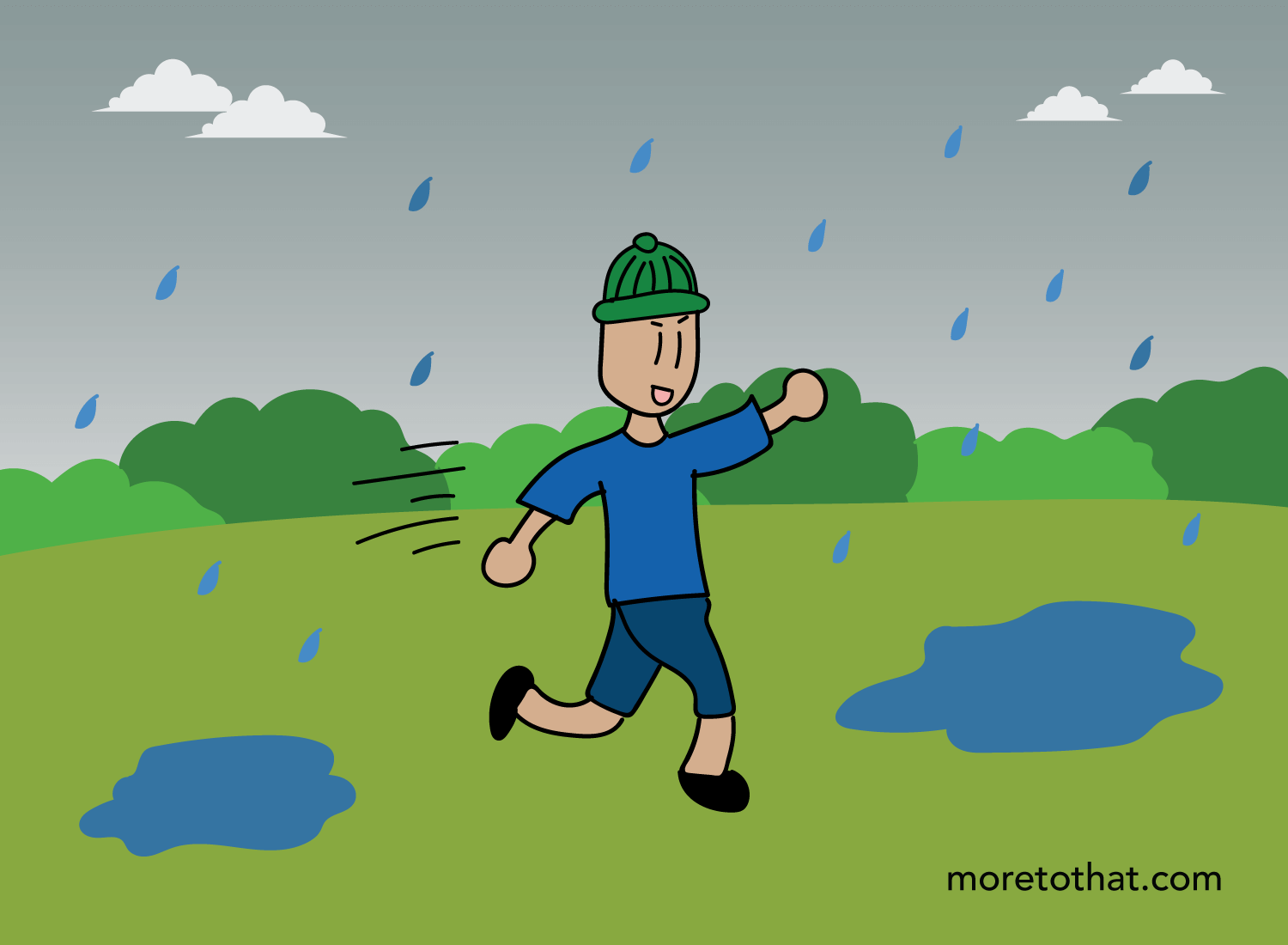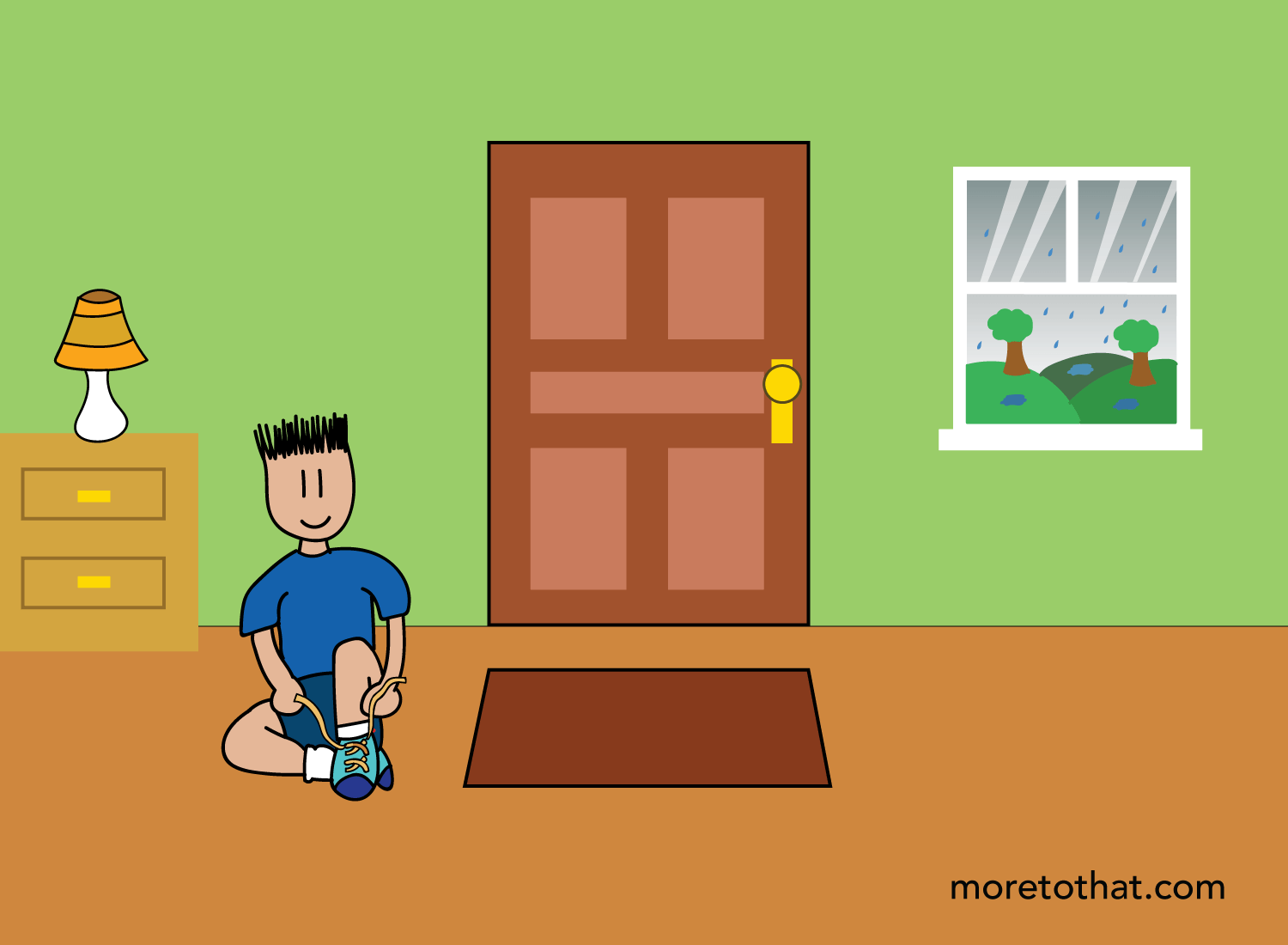A Few Lessons on Showing Up
Every morning, I go for a 30-minute run. It doesn’t matter if it’s a weekday or weekend, if I’m sluggish or energized, if it’s raining or not. Regardless of the external weather or my internal mood, I run the same route every morning, without fail.
I’ve been doing this for a few years now, and there are a number of lessons I’ve learned about this routine that can be applied to any aspect of life. So here they are, presented as short stories that will take just a few moments to digest.
(1) Strangers will root for you when you reliably show up.
Part of my route consists of a long, uphill stretch that spans for a quarter mile or so. It’s not easy, which is evidenced by the fact that I rarely see other people running up this hill with me (downhill, on the other hand, is another story).
One morning, I recall running up this hill and reaching the stop sign that signals its zenith. I took a moment to glance over at the car that was paused there, and what I saw was quite memorable.
The car’s occupant was a person I’d never seen before, but the big smile on this man’s face indicated that he’s seen me run around the neighborhood many times. He promptly raised his hand to wave hello, then gave me the most emphatic thumbs-up that I’ve ever had the opportunity to receive.
It was powerful.
This gesture signaled a simple point: He was rooting for me. Even though we’d never met before, there was something about my consistency that made me a person worth cheering for. He didn’t know my background, my values, my beliefs, anything. But the mere fact that I showed up every morning to tackle this hill was a good enough indicator that I was someone to happily acknowledge.
You can make a first impression long before you meet its recipient, and the best way to do that is to show up regularly, even if you think that no one is watching.
(2) There will only be a few other people that regularly show up with you.
Every New Years’ Day, I get up a little earlier to go for my run. I do this because I think that my route might get a little crowded, given all the people that want to actualize their resolutions. If I could beat the rush, then perhaps I wouldn’t have to duck and dodge all the newfound runners that morning.
But each year, I see the same thing.
The few people I see exercising on January 1st are the same ones I saw the day before on December 31st. They would also be the same people I’d go on to see later in the new year as well.
As it turns out, there’s never a large influx of new entrants on any given day. It’s always the regulars, out and about, doing their thing. Occasionally, I might see a new face running along a similar route, but I rarely see that person again.
If you do something consistently for a long time, the people you see often are those that also exhibit that same consistency. In your eyes, this group will seem like the “regulars,” but in the eyes of most, they are individual outliers that exhibit a remarkable sense of commitment.
(3) People will assume that your consistency applies to other domains of your life as well.
There’s someone in my neighborhood who frequently writes but occasionally runs. We were discussing our shared interests in both domains, and when I got around to asking about his writing practice, he said, “Oh, I’m probably not as disciplined as you.”
Interestingly, he said this before I told him a thing about my own writing regimen. All he knew was that I ran every morning, and he used that information to assume that I had a similar adherence to routine in a different domain.
When you show up regularly in one aspect of your life, you won’t be perceived as that person who’s consistent in that one particular thing. Rather, you will be seen as “the person who always shows up,” regardless of how many domains you actually show up in.
(4) Once you get past the start, you’ll get to the finish.
There are many mornings where I’d rather not go for my run. Maybe I’m particularly tired, or there’s a heavy rainstorm that looks rather unwelcoming to tread through. There are many days like this, where the comfort of staying inside feels like the logical path to remain on.
When this happens, I do one simple action: I put on my running clothes. That’s it. Because once I have these clothes on, the narrative I tell myself shifts. Since I’m dressed to go outside, it becomes irrational for me to stay inside with these garments on. The logical path is no longer contained to my home, and instead extend outwards to my running route.
Once you get past the start, there’s too much friction for you to go back and hit the abort button. Once my running clothes are on, I’d feel a sense of embarrassment if I took them back off without having completed my run. Even if the outside conditions aren’t favorable, the simple act of putting on those clothes signals my commitment to overcoming those conditions.
Friction is at its highest at the start of any endeavor. To alleviate this, do one simple action that makes the beginning as frictionless as possible.
(5) Regularly showing up is sustainable only if you do it for yourself.
Accountability pacts are useful for getting started, but eventually lose their efficacy as time goes on. External motivation is a great tool for kickstarting a new routine, but can become a burden once the thrill wears off. What was once a cheerful check-in on someone’s progress can become a thorny pressure on one’s side if the habit is failing to hold.
Ultimately, any commitment to showing up has to come from within. It has to stem from a fundamental belief that this routine or habit will make you a better person, and that regularly acting on this belief is the only way to manifest that vision.
I run every morning for one reason: It makes me a clearer thinker. I don’t do it because my watch is telling me that I burned 500 calories or someone extolled its benefits to me on some podcast. I do it because it reliably dispels whatever fog I had in my mind, which allows the rays of clarity to take its place. And when I’m a clearer thinker, I’m a better family member, friend, and writer.
As long as I believe this, then I will continue exercising every morning. There’s nothing I need to prove to anyone, as the only person I need to confirm this belief with is myself.
The inner compass is what makes showing up sustainable, largely because it’s the only way to align what you do everyday with the person you aspire to be.
_______________
_______________
Related Posts
How to get past the friction of perfectionism:
Showing up is simply a matter of doing a little bit each day:
Create For Just One Hour Each Day
In the end, the small things are what lead to the best things in life:






